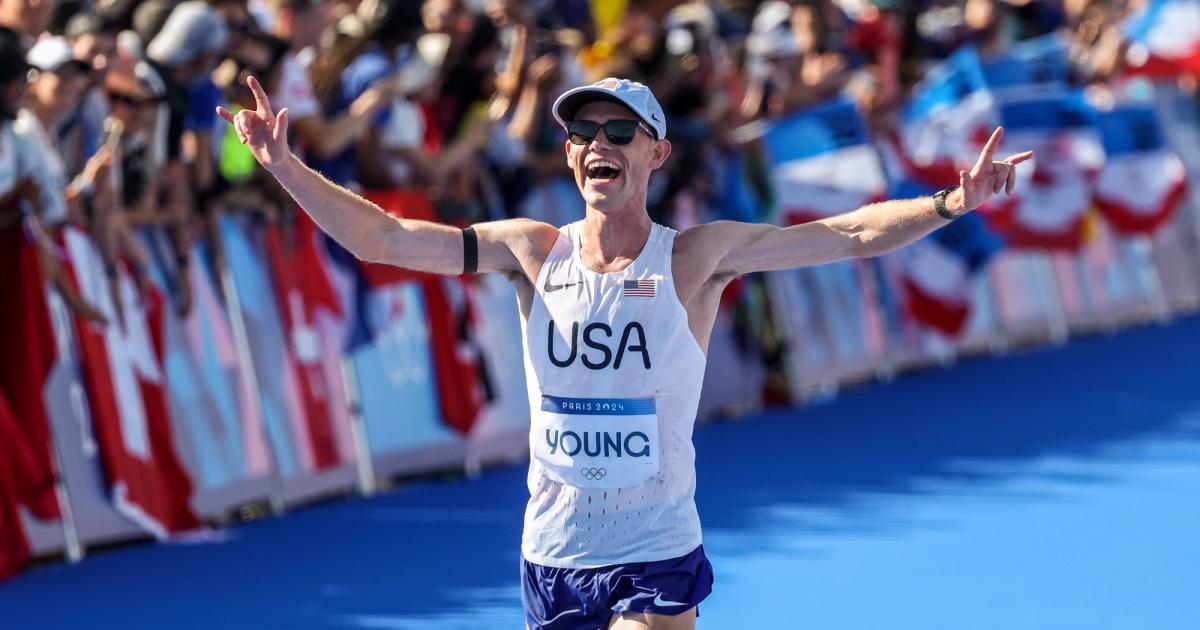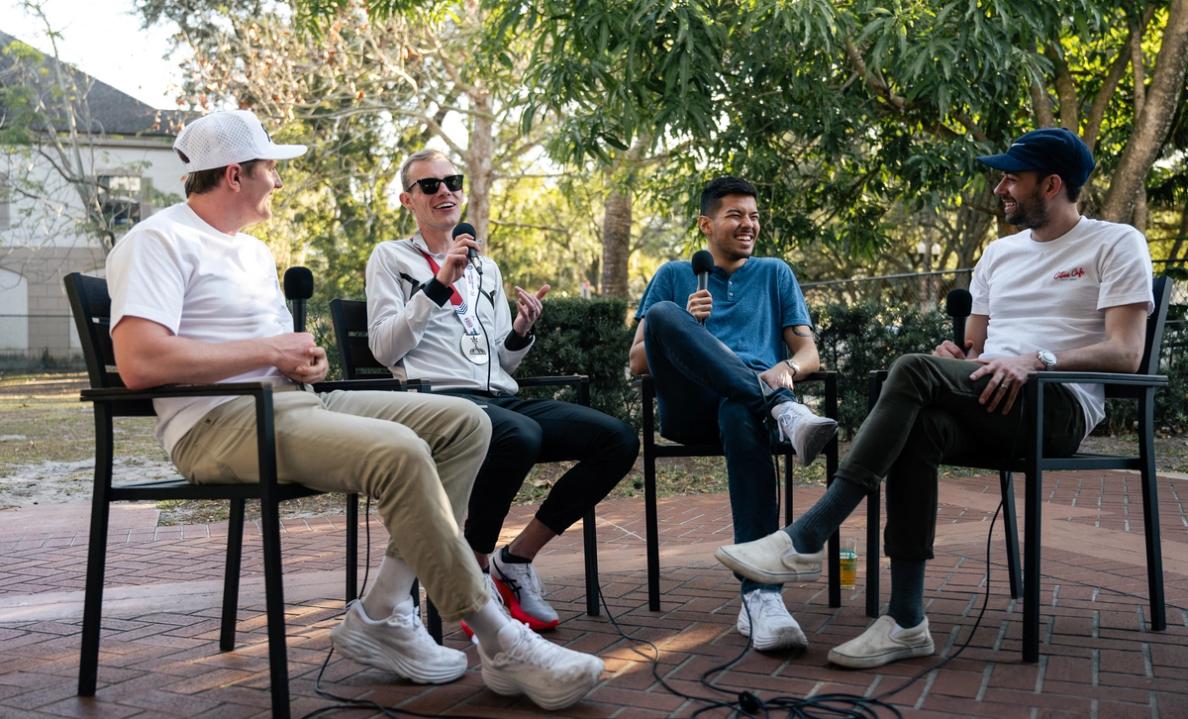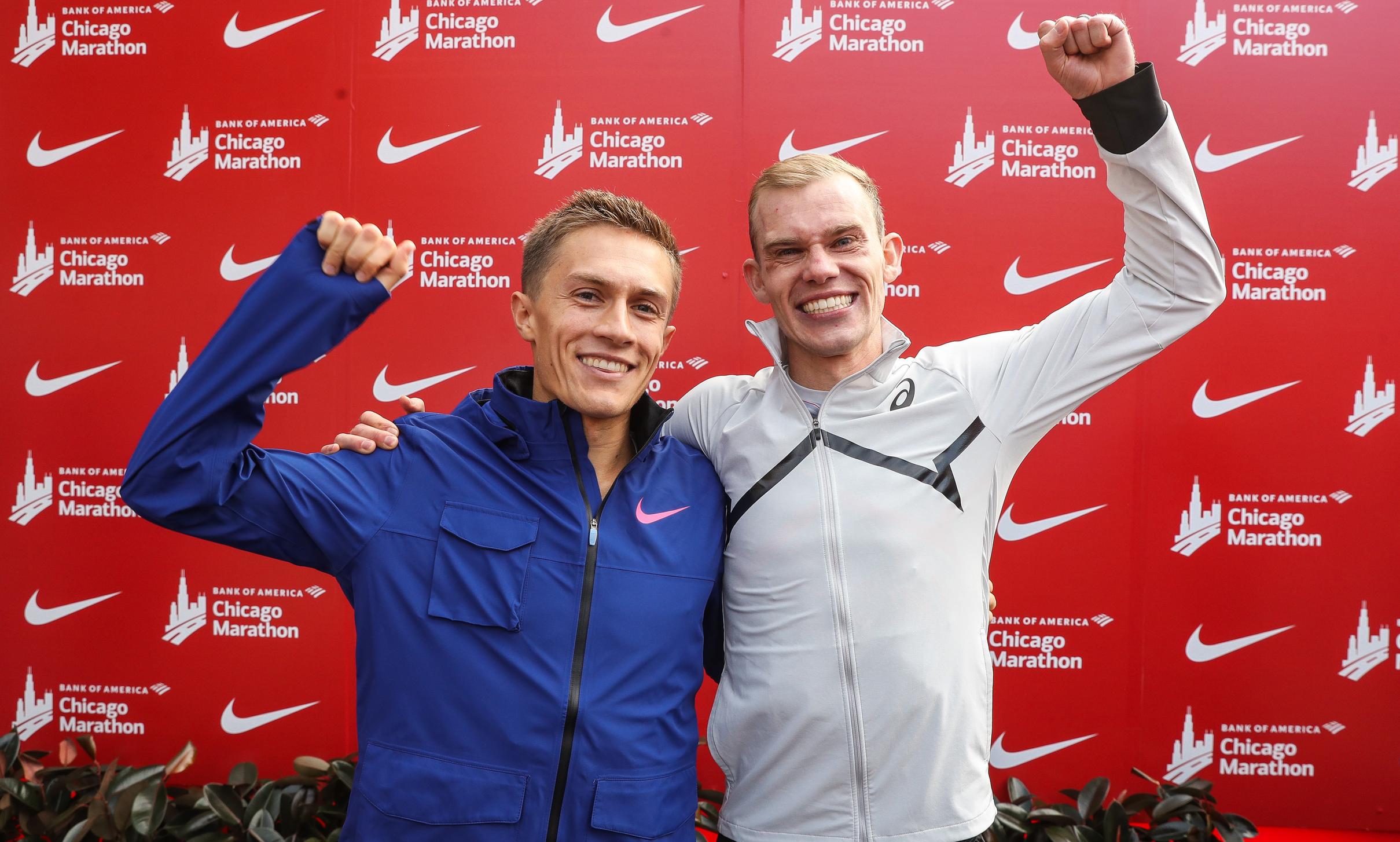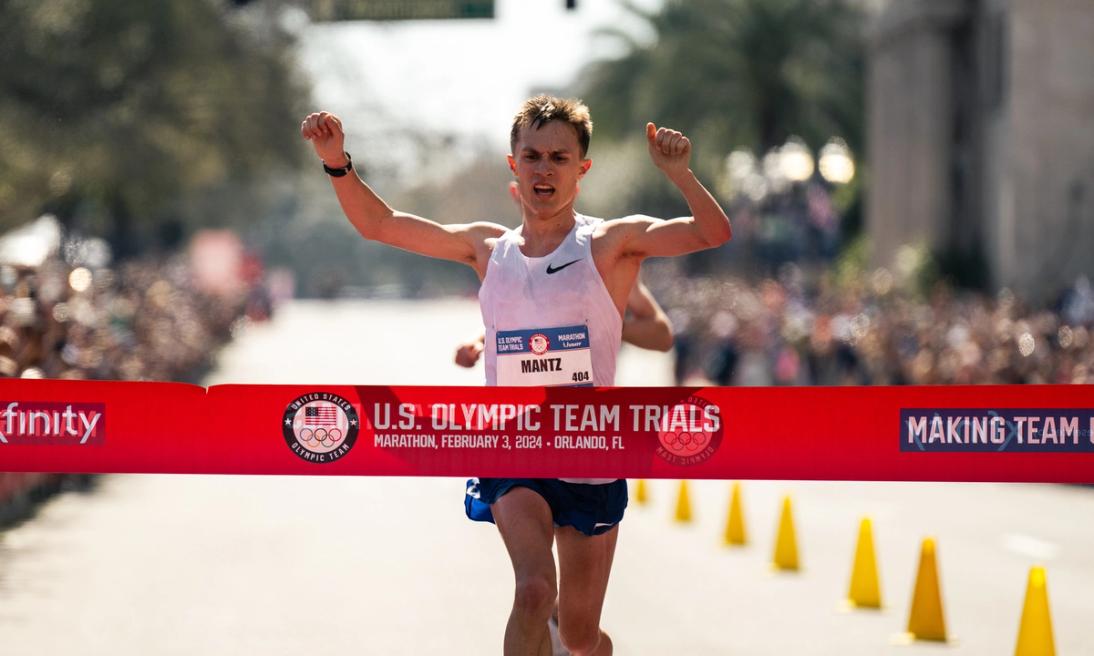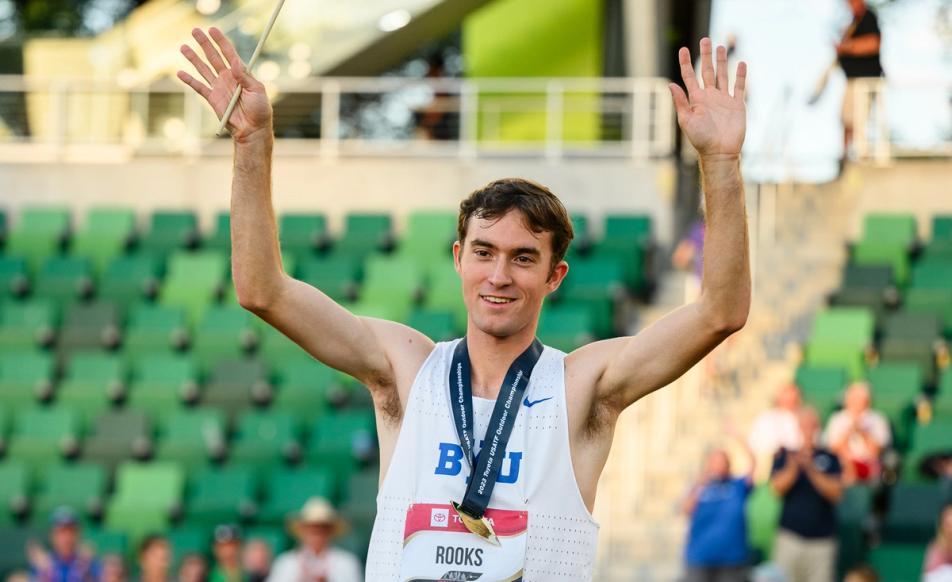August 15, 2024
Listen
"You're always looking at, ‘What could I have done here? What could I have done there?’ There's a lot of mixed emotions, but I've been telling people that 90% of my feelings are like, ‘Wow, that was incredible. That was amazing. I did better than I ever thought I could.'"
My guest for today’s episode is Clayton Young, fresh off his strong performance at the Paris Olympics Marathon, where he finished in ninth place with a time of 2:08:44. Clayton, along with his teammate Conner Mantz, ran smart and fearlessly on a challenging course that was anything but easy. The race took place on a hot, hilly course yet it ended up being a fast day as Ethiopia’s Tamirat Tola ended up breaking the Olympic record in 2:06:26.
At one point, right before tackling the steepest hill of the course, Clayton and Conner even shared a high-five again – which just continued to highlight the camaraderie and confidence the former BYU stars carried into this race. Clayton held his own, hanging back slightly but managing to rejoin the lead pack before the final push. Despite the brutal conditions, he found a second wind in the last 10K, surprising even himself with how strong he felt in those closing miles.
This kind of strategic racing is a testament to his growth as a marathoner, and it’s no surprise that he’s emerged as one of the top Americans. He takes us through the highs and lows of the training block, how he executed the race plan, how much he fed off the excitement of Team USA at the Games and much more.
Host: Chris Chavez | @chris_j_chavez on Instagram
Guest: Clayton Young | @_clayton_young_ on Instagram
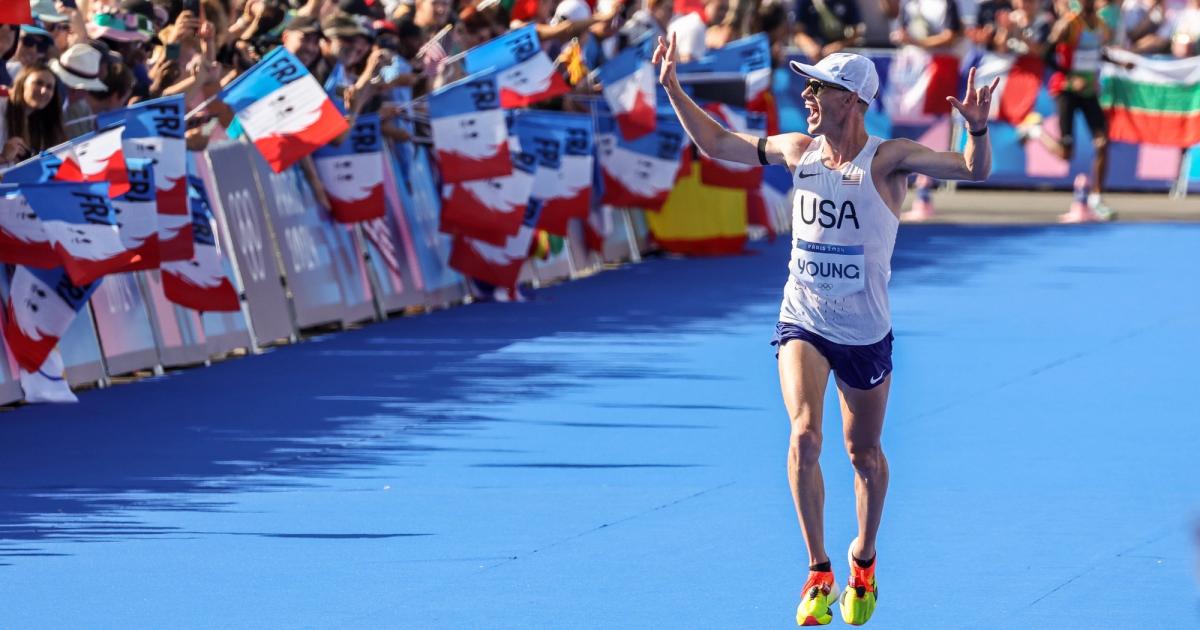
Photo by Kevin Morris / @KevMoFoto
The following excerpt has been edited lightly for clarity. You can listen to the full interview with Clayton Young on the CITIUS MAG Podcast – available on Apple Podcasts, Spotify or wherever you get your shows.
CITIUS MAG: A ninth place finish in 2:08. Clayton Young, congratulations! How's the body feeling after what was billed as the most torturous, toughest marathon course ever?
Clayton Young: It's been interesting to reflect on these last couple of days and then take it back the last 16 weeks and really break down how this was possible. Ever the athlete, you're always looking at, ‘What could I have done here? What could I have done there?’ There's a lot of mixed emotions, but I've been telling people that 90% of my feelings are like, ‘Wow, that was incredible. That was amazing. I did better than I ever thought I could, especially given my history.’
There's also the ever-unsatisfied athlete that always wants more, especially when you have somebody like Conner Mantz as a teammate. He is so driven, he's so hungry and we kind of share that hunger together. I think I walk away with it very happy. That's kind of what you need to do, especially with all the people that were out there to support me and the time that I got to spend with them. Nobody wants a grumpy Clayton Young after a race. But it's genuine. It's real. I'm really happy. And especially, kind of like you said, that course was so tough, (Tamirat) Tola ran so fast, so to run as fast as I did and do some interpolation of maybe how fast I could go on other courses gets me excited – not only for four years in L.A., but obviously these next one, two, three years. That's I guess one of the beauties about being a marathoner; The Olympics are big, obviously for track and field and for marathoning, but, I feel like with the World Major Marathons, we get to celebrate our fitness twice a year on a really high performing stage. And that's pretty cool.
CITIUS MAG: After your race, I was like, ‘Alright, how slow did he go up the hill? And for a moment, your pace starts slipping into the 7:40s. Did you notice that? I know you said you stopped looking at your watch.
Clayton Young: No, I decided not to look at my watch, so it was definitely shocking afterwards when I was going back and looking at the data… I ran slow up that hill. It was like, ‘Wow, dang it.’ I thought I was doing so good to keep in contact with my little pack. I wonder if I would have kept my eyes up and saw some of the moves made if it would have made a difference. That's another what if, right? But who knows, maybe if I would've gotten on the other side I would have totally blown up.
When you look at the back of the entire race, there's definitely these moments of, ‘I could have done that.’ But then there's also so many moments where it's like, ‘Oh my gosh, I lucked out.’ I lucked out that I was part of the chase group that eventually caught Conner’s group. I lucked out that I was the last guy that decided to make that move. I ran a very efficient first 30K of that race, 25K of that race. While you look back and you see maybe some things you’d change, by and large I've come back and been like, ‘Wow, I made some great decisions.’ I was definitely guided in some of these moments. That was kind of my prayer, honestly, going into the race. I was just like, ‘Please help me to make good choices, because on this course you can make so many wrong choices and pay for it.
CITIUS MAG: The biggest difference in comparing this race to the Olympic Trials is that at the Trials, on paper, you and Conner were the top dogs that everyone was probably cueing off of. And in a race like this, if you sorted it by personal best descending order, you guys are no longer in control. It felt like you guys had to respond and cover everyone else's moves.
Clayton Young: At the Olympic Trials, we kind of had our hit list. We had these guys with the moves we were going to cover. But at the (Olympics), it was like I know Eliud (Kipchoge) and I know (Kenenisa) Bekele and I know Tola, but you’re right; I have no idea how they race or how they train, especially on a hilly course. So you're spot on. It kind of became this idea that instead of doing any research, it's almost like do no research, because you don't want to be daunted by it, you don't want to be overwhelmed by it. It's too much. I've been telling people, ‘We're ranked 60-something, but top 20 would be a good day, top ten would be a great day.’ But there was definitely a lot of doubt going in. Like I said, at 20K, as you're coming down that first hill, I was like, ‘Well, I guess it's a top 20 sort of day, this is about it.’ But it surprised me how well I could recover and respond and put myself in contention again.
CITIUS MAG: One thing you highlighted in your post-race interview was your progression: 2:29 back in 2020; 2:16 in 2021; 2:11 in 2022. 2:08 last year. And now again, you ran 2:08 at the Olympics and finished ninth. Now that you've had a couple days to think about where your career has taken you, what would you tell that original Clayton Young lining up for the marathon at the 2020 Olympics Trials in Atlanta?
Clayton Young: I've had this question asked once before, right after the Olympic Trials: What would you tell Clayton of four years ago, three years ago, two years ago? I had to think about it for a while and I kind of came to the conclusion that I would just give him a big hug and say, ‘Keep doing what you're doing,’ because I wouldn't want to rob him of all of the experience that he had to gain. The only reason that ninth place finisher Clayton Young – 2:08 on the Paris course – exists is because of what I had to go through the last four years. So I wouldn't want to rob him of those opportunities. There's no shortcut to this. While I wish that podium would have come sooner, I think there were valuable lessons that I had to learn that are going to continue to pay off for the next decade, whether that's in life or whether that's in sport. That’s all I would really do: Just give Clayton of 2019 when he's suffering, or 2020 in the marathon, a big hug and say, ‘It will all work out. That's all you’ve got to know’. And I could honestly say it has…
There's that kind of belief that's starting to be instilled in me now and that's really motivating; Get me on the right course, the right weather, the right day. I'm not going to lie – the fact that I've had three great marathons in a row is, knock on wood, very special. This doesn't always happen. Consistency is a skill. Performing is a skill. Winning is a skill. Not saying that I've won, but you could say I've run to win. I've competed well. But at the same time, I don't take for granted this chain of marathons that I've had, so I'm hoping that the next ones line up and continue to line up so that I can really be that 2:04, 2:05, 2:06 guy that I want to be. Conner and I said it after Chicago on the CITIUS MAG Podcast; We said that we’re eyeing the American record. And whether it's us or whether it's the future generations of American distance running, I think we've instilled some confidence in them and in us. Who knows how soon it'll fall, but I think it will fall and it will fall soon.
CITIUS MAG: The cool part about the Olympic schedule is that the marathon comes at the very end. It does suck sometimes when you want to take part and see all the different things but you only have so much energy to expend. Did you find time to go to the track and see Kenneth Rooks compete and some of the other people compete? Did you feed off of that to quell some of your nerves in the lead-up to the race?
Clayton Young: Absolutely. Confidence breeds confidence. To see team USA crushing it on the track, there was definitely a lot of emotions throughout the entire week.. To see Kenneth (Rooks) crush it in the prelim and run a tactical race to get to the final was really cool. I wish I was in the stadium for Kenneth’s race. But with it being two or three days out from my race, we watched it from the Team USA gathering area at the Olympic Village and I was absolutely losing it. I think everyone feels a little bit self-conscious at first being surrounded by all these track people that are watching a race. But with three laps to go, it was as if there were nobody else in the room. I didn't care how I looked. I was just screaming my head off and screaming at this screen to the point where more people kept coming over because they (thought), ‘What is this guy freaking out about?’
So for Kenneth to get silver was so special, so validating. The way that he did it, the way that it was so gutsy, the fact that he almost took gold, the fact that he held off bronze. Probably the most special moment was the day later; Kenneth texts me and he's like, ‘Hey, I'm busy all day, but I’ve got five minutes right now and I'd love to see you before you race. Can I come see you?’ And I said, ‘Yeah, let's meet up.’ He came and he let me hold his medal – and holding that silver medal, I lost it. It was just so, so special. I've known Kenneth since he was a freshman at BYU and watched him go through this journey and it definitely gave Conner and I this motivation of, ‘We want a medal. We can do it.’ That was the little bit of confidence that we needed to be able to mix it up and feel like we could hang in the marathon and do our best to get a medal.
Time Stamps:
- 5:22 - His reflections on the Paris Olympics marathon.
- 7:41 - The factors that led to the Olympic marathon being so fast.
- 10:42 - What his build looked like heading into the Olympics.
- 14:57 - What his and Conner Mantz’s race plans were for the marathon.
- 16:49 - Breaking down the last half of the race after the top pack broke away.
- 22:22 - What was going through his head during the massive hill on the marathon course.
- 24:27 - His thoughts on his competitors leading into the marathon.
- 26:51 - How he approached the downhill stretch after the epic marathon hill.
- 33:08 - The story of him and Elroy Gelant working together and pumping up the crowd.
- 35:27 - How his wife, Ashley, has been his biggest supporter.
- 38:10 - The pressure involved with documenting his buildup to the marathon.
- 42:23 - How he was able to feed off the energy of Team USA’s performances at the Olympics.
- 47:00 - What he would tell his younger self.
- 50:32 - Goals for his next marathon.
Support The Sponsor

ASICS
CITIUS MAG’s coverage in Paris is powered by Asics.

OLIPOP
For the past year, we’ve redefined Olipop as more than just a healthy drink known for its gut microbiome with a low sugar content and a much better alternative to regular soda. You know there are more than 16 flavors, including classic root beer, cherry cola, and lemon-lime. You know it as The Runner’s Soda. Use code CITIUS25 at DrinkOlipop.com.
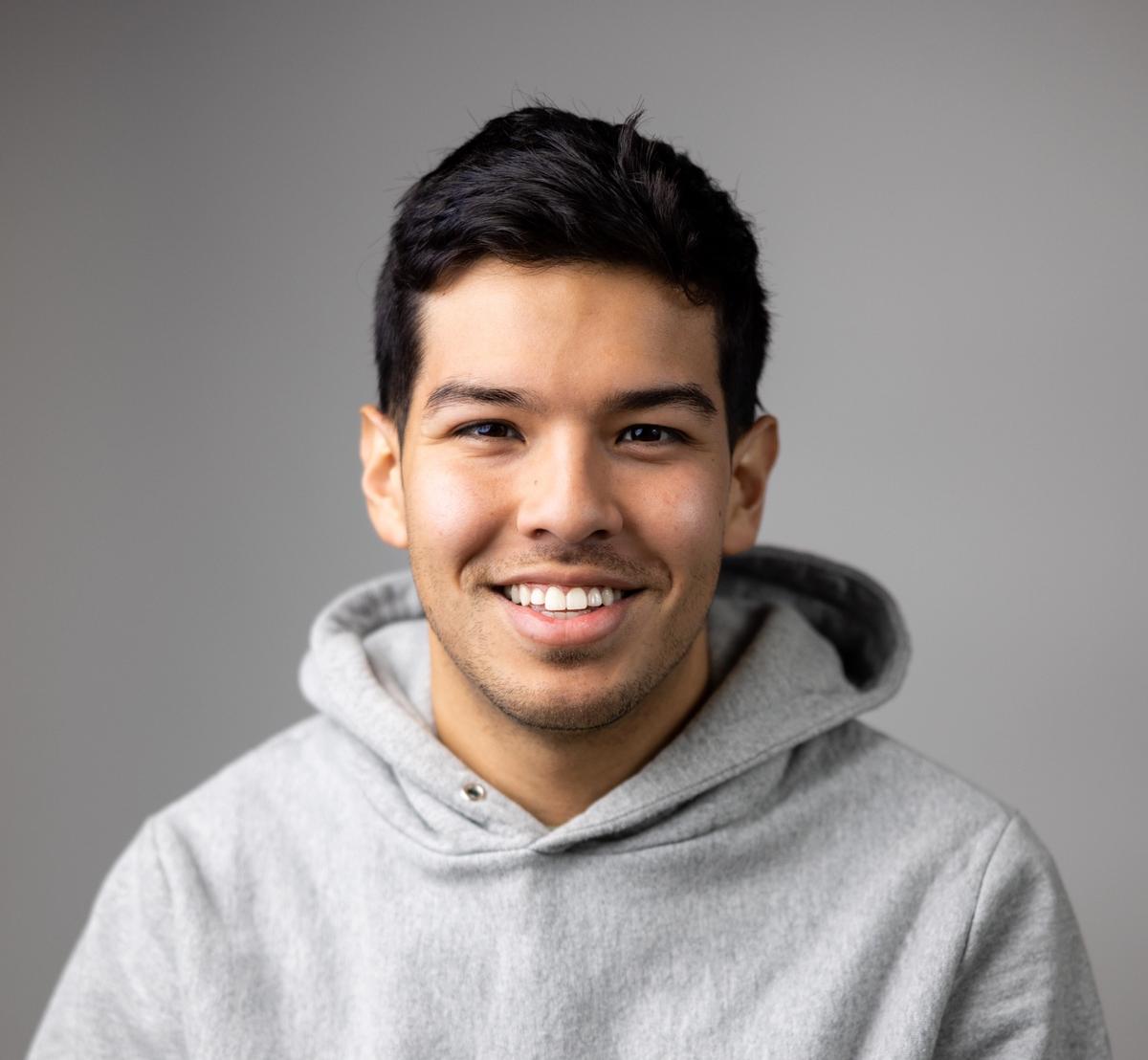
Chris Chavez
Chris Chavez launched CITIUS MAG in 2016 as a passion project while working full-time for Sports Illustrated. He covered the 2016 Olympics in Rio de Janeiro and grew his humble blog into a multi-pronged media company. He completed all six World Marathon Majors and on Feb. 15th, 2025 finally broke five minutes for the mile.
